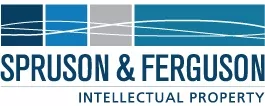This article looks at the recent decision by the Intellectual Property Office of Singapore (IPOS) in the Matter of a Trade Mark Application by Yitai (Shanghai) Plastic Co., Ltd. and subsequent Opposition by Charlotte Pipe and Foundry Company [2020] SGIPOS 14.
Background
This case involves an opposition proceeding commenced by
Charlotte Pipe and Foundry Company (the
"Opponent") against International
Registration "![]() " designating
Singapore in Classes 17, 19 and 20 filed by YITAI (SHANGHAI)
PLASTIC CO., LTD (the "Applicant").
" designating
Singapore in Classes 17, 19 and 20 filed by YITAI (SHANGHAI)
PLASTIC CO., LTD (the "Applicant").
The Opponent is an American company established in 1901 who had
attained global presence over time in the business of manufacturing
pipes and fittings. The Applicant is a Chinese company based in
Shanghai, established in 2001 and supplying similar products to the
Opponent. Both parties are competitors in the same market sector
with the Applicant intending to register and use the mark
"![]() " ("Application
Mark") which the Opponent had claimed was too similar
to both its Registered Mark "CHARLOTTE PIPE" registered
on 9 February 2016, and their Unregistered Marks containing the
term "CHARLOTTE".
" ("Application
Mark") which the Opponent had claimed was too similar
to both its Registered Mark "CHARLOTTE PIPE" registered
on 9 February 2016, and their Unregistered Marks containing the
term "CHARLOTTE".
The Applicant filed an International Registration for the Application Mark designating Singapore on 7 October 2015 which was opposed by the Opponent on grounds that it was similar to its earlier trade mark and that registration of the mark would amount to the tort of passing-off.
Summary of Decision
The IP Adjudicator found that the Opponent's Registered Mark was not an earlier mark as the application date for the Opponent's Mark was 9 February 2016, but the priority date for the Application Mark was 7 October 2015 , and the Opponent failed on this ground.
The Opponent also argued that their Unregistered Marks are "well-known marks" in Singapore as at 7 October 2015 but failed to present clear evidence to support their assertion that they had a long and substantial use of the Unregistered Marks in Singapore. Sales records tendered by the Opponent failed to show how the sale figures related to sales made in Singapore, and use of the Unregistered Marks, as there was no reference to Singapore or any of those marks.
Nevertheless, the Opponent succeeded on the ground of tort of passing off and the application to register the Application Mark was refused.
It was established that the proper date when the tort of passing off was committed was 15 October 2015, the date when the Applicant's International Registration was designated in Singapore. The Applicant's evidence failed to show that the Application Mark was used on goods imported to Singapore from 2011 to 2015, and their only evidence relevant to the case was dated 2019.
On the other hand, the Opponent had provided sample invoices to its distributor in Singapore during the period of 2013 to 2015, and sample invoices from their distributor to its Singapore consumers from 2014 to 2015. As there were sales conducted by the Opponent in Singapore from 2013 to 2015, the element of goodwill was established.
With regards to the element of misrepresentation, it was found that the Applicant had the intention to deceive customers or to pass off their goods as that of the Opponent's by deliberately copying parts of the Opponent's Unregistered Mark, namely the word "CHARLOTTE", in particular the stylised "O". Most importantly, the Applicant had failed to provide any explanation as to how the Application Mark was derived and why the design of the Applicant's Mark came to be so similar to part of a trade mark used by the Opponent. This led to the IP Adjudicator's inference that the Applicant had deliberately copied the Opponent's Unregistered Mark. Furthermore, as both parties supplied similar products, such as pipes and fittings and industrial piping systems to the same sector of the market and consumers, there was a likelihood that confusion would arise amongst the relevant public in Singapore. There was also a real risk of substantial damage given that the Opponent's goodwill would be affected through a diversion of custom as both parties are direct market competitors.
Our Comments
A few important takeaways in relation to this decision are as follows:
- First, it is crucial for the parties to determine the correct priority date of the "earlier mark" to rely on the relevant sub-provisions of Section 8 prior to commencing an opposition proceeding;
- Second, although local case laws established that it is not too difficult for a trade mark to be regarded as "well-known in Singapore", it does not mean that the relevant threshold for the opponent to satisfy is minimal. The Opponent should assess the facts of each case to determine the extent of evidence to be submitted to the court, and tender the relevant evidence in a clear and convincing manner. The date and location of use of the mark should be clearly stated in the evidence to avoid having the evidence dismissed;
- Last but not least, it is important for parties to address every allegation, as any attempt to avoid doing so could be seen as an admission of liability. In this case, the Applicant's failure to explain its choice for the mark amounted to an admission that they had deliberately copied part of the Opponent's Unregistered Mark.
Prior rights obtained though registrations will give you the right to stop third parties from using and/or registering identical or similar marks. Overall, this decision also serves as an important reminder for businesses across the world to safeguard their rights through early registration of their trade marks locally and overseas.
The content of this article is intended to provide a general guide to the subject matter. Specialist advice should be sought about your specific circumstances.

